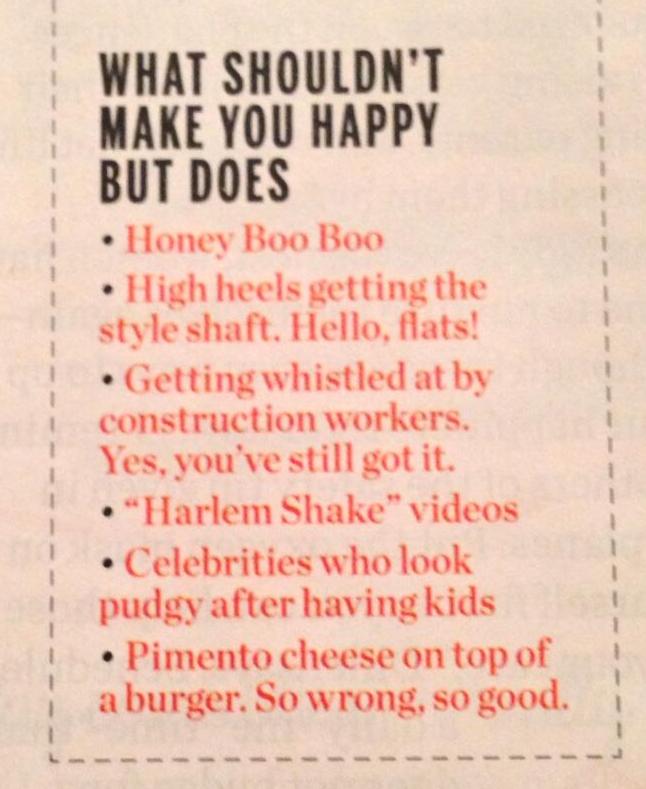In response to a blurb in Health magazine that treats street harassment as a compliment, SSH reader Nicole sent them this letter, and gave me permission to share it on the blog:
Dear Editor,
I recently came across a clipping from your magazine which included a list of “What Shouldn’t Make You Happy But Does”. Included in the list was “Getting whistled at by construction workers. Yes, you’ve still got it.”
I was really appalled and disappointed to see this written in your publication. On the surface, it seems like an innocent, almost humorous comment. However, as a woman who is constantly “hollered” at and harassed by men on the streets, I do not think it should be taken so lightly.
It is not a compliment when a man, a stranger, whistles at a woman or says something under his breath as he looks her up and down. It’s disgusting, demeaning and unwarranted. Ignoring something like that takes all the dignity away from the woman.
More importantly, this statement is saying that women need men’s attention to be validated. This is the antithesis of empowerment. The majority of these men will holler at anything with a vagina. They don’t care about who you are or what you have going on in your life. When I’m walking down the street, I have somewhere to be. I was not put on that sidewalk to entertain or to be judged. So you’re right: this shouldn’t make us happy. And it never will.
Thank you,
Nicole Emerson and females everywhere
____________________________________________
NOTE: Nicole and SSH were originally told the blurb was found in Women’s Health Magazine, but on June 25, we learned it’s in the June 2013 issue of Health Magazine. Apologies to Women’s Health for this error.


